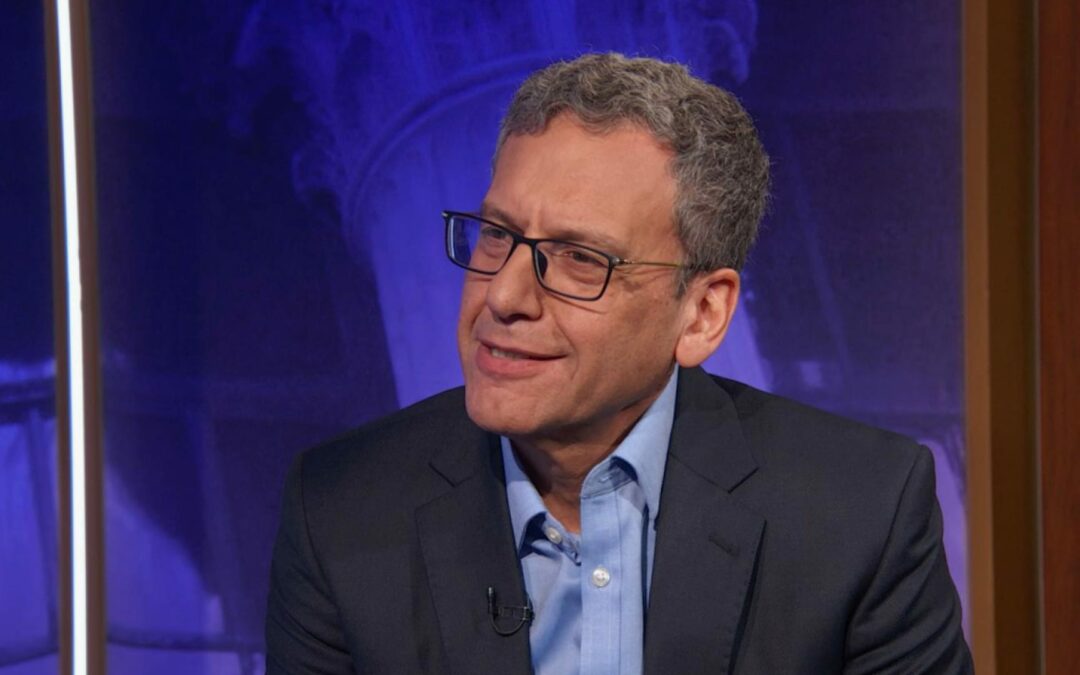Hamid Akhavan, EchoStar CEO, speaking on CNBC’s “Squawk on the Street” on Sept. 30, 2024.
CNBC
EchoStar is selling its Dish TV provider and digital business Sling to rival DirecTV in a deal announced Monday that brings together two of the largest pay-TV providers, and sent EchoStar shares plunging 10%.
DirecTV agreed to pay a nominal fee of $1 for Dish. The deal will see DirecTV assume about $9.75 billion in debt and is contingent on consent from some of Dish’s bondholders, according to a news release.
The deal is expected to close in the fourth quarter of 2025. Combined, DirecTV and Dish will serve close to 20 million customers, according to Reuters.
“This was the right time to bring the companies together so we could create a company that ultimately had enough ability to negotiate better deals with the programmers and bring smaller packages to the market, more bite-sized packages, which the consumers are asking for,” EchoStar CEO Hamid Akhavan told CNBC’s “Squawk on the Street” on Monday.
“I think this was a scale game that kind of puts us in a level playing field with the competitors in the market,” he said.
The content distribution industry as a whole has been on a major decline, Akhavan said, and distribution companies such as Dish and DirecTV have fallen behind other platforms with newer technologies and wider reach.
He also said EchoStar was not able to fully support both its video distribution and core wireless internet businesses, and that this merger will allow the company to put all of its resources toward its core services.
Also on Monday, AT&T announced it would sell its entire 70% stake in DirecTV to private equity firm TPG for $7.9 billion. The company sold 30% of its stake to TPG in 2021, then valued at $16.2 billion. AT&T originally bought DirecTV in 2014 for $48.5 billion.
The possibility of a merger between Dish and DirecTV has been rumored for decades. The companies were close to a deal in 2002 in which EchoStar would have acquired DirecTV from General Motors‘ Hughes Electronics, before the Federal Communications Commission shut it down. At the time, EchoStar beat out Rupert Murdoch’s News Corporation in a bidding war for DirecTV.
Since then, the satellite TV industry has taken several major hits as consumers moved to streaming services. With a roughly $2 billion debt payment looming and just $521 million in cash and cash equivalents as of June 30, according to public filings, EchoStar was increasingly facing the prospect of bankruptcy. The company recently attempted to refinance some debt, but failed to reach an agreement with bondholders, according to a Sept. 23 filing.
Akhavan said EchoStar has secured enough capital for a bright future but will not be making many big moves soon as it is still digesting the recent changes. He said the company would prioritize customer acquisition over expanding services.
“We are as competitive as anybody else in terms of our offerings, whether it be price, whether it be coverage, whether it be quality,” he said.
— CNBC’s Lillian Rizzo and Alex Sherman and Reuters contributed to this report.









